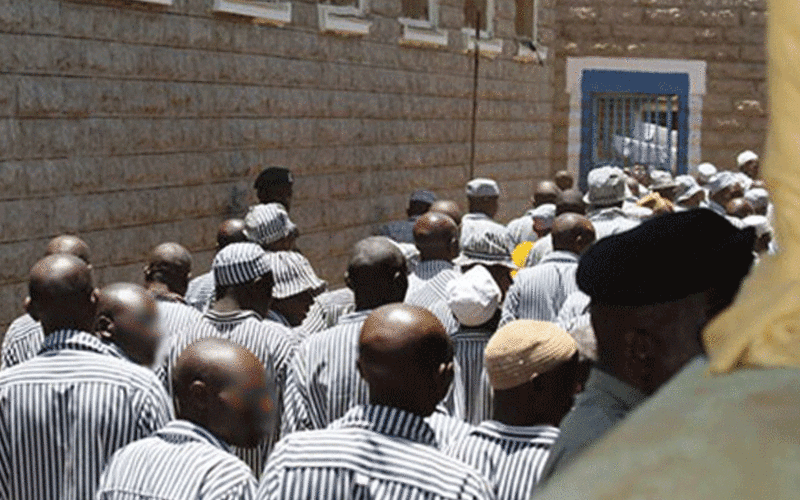Kenya needs sound rehabilitation system for inmates

One of the basic objectives of criminal justice systems is the rehabilitation of offenders and their successful social re-integration into society.
Imprisonment and other forms of criminal penalties are not just to punish criminals, but also to discourage other people from committing similar offences.
Effective rehabilitation strategies are necessary in order to reduce cases of repeat offenders, improve public safety, and ensure the re-integration of the offenders into society upon release so that they can lead a law-abiding life.
However, without proper rehabilitation, the prisoners risk relapsing into criminal behaviour, commonly referred to as recidivism, even after being arrested and jailed.
The UN Standard Minimum Rules for the Treatment of Prisoners (the Nelson Mandela Rules) observes that meaningful rehabilitation programmes in prisons are important in ensuring public safety and reducing recidivism.
Recently, there has been a surge in cases of recidivism, and there is an urgent need for this to be nipped in the bud through proper rehabilitation and monitoring both by the authorities and community members.
Criminologists and sociologists argue that most of the rehabilitation and social reintegration interventions can be delivered more effectively in the community where such people belong.
On Tuesday, detectives in Narok arrested an officer under interdiction, Inspector Davies Simiyu Musundi and his four accomplices for allegedly extorting money from liquor dealers by impersonating Kenya Revenue Authority officials.
It was later established the Simiyu had at least three other related cases of impersonation, extortion, and forgery at Nakuru and Nairobi’s Milimani Law Courts. This is despite the previous arrests and being aware that he is likely to be arrested again.
In another case on Sunday evening, a murder convict was arrested for the October 15 murder of a foreigner in Kilimani and other robberies in the city.
This implies that stiffer penalties do not necessarily chasten convicts but instead exacerbate recidivism. Research has shown that in some cases, people who are imprisoned for longer periods are more likely to associate with criminal elements and identify with criminal values.
The Mandela Rules emphasize that vocational training, skills development in various fields, and other forms of assistance, should be offered by correction facilities to ensure proper rehabilitation.
In Kenya, for example, the Kenya Prisons Service has a revolving fund for prison farms and industries to support all prisoner rehabilitation activities in the 129 penal institutions through purchase of training materials and paying for their trade tests.
However, the Service is currently unable to fully undertake rehabilitation of prisoners due to shortage of funds for vocational training and skills development in various fields.
Recidivism can also be attributed to greed, corruption leading to acquittals, lack of adequate rehabilitation and reintegration services among others.
Latest police reports indicate that crimes by former inmates alone account for a substantial share of current and future crimes, posing a major policing challenge.
Only a multi-pronged approach involving the authorities and communities can be effective in dealing with recidivism and the challenges of reintegration of convicts.
—The writer is senior reporter at People Daily












